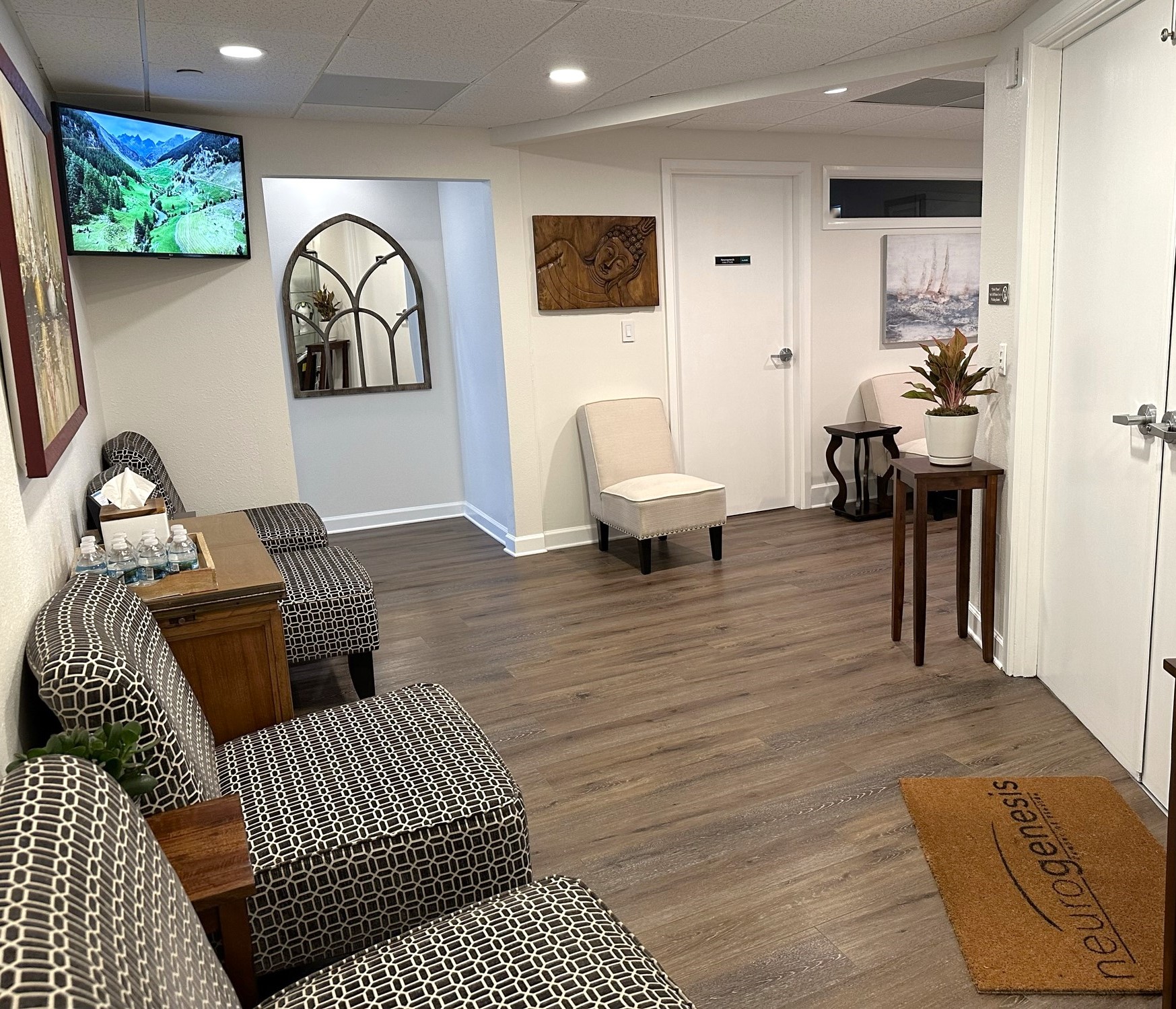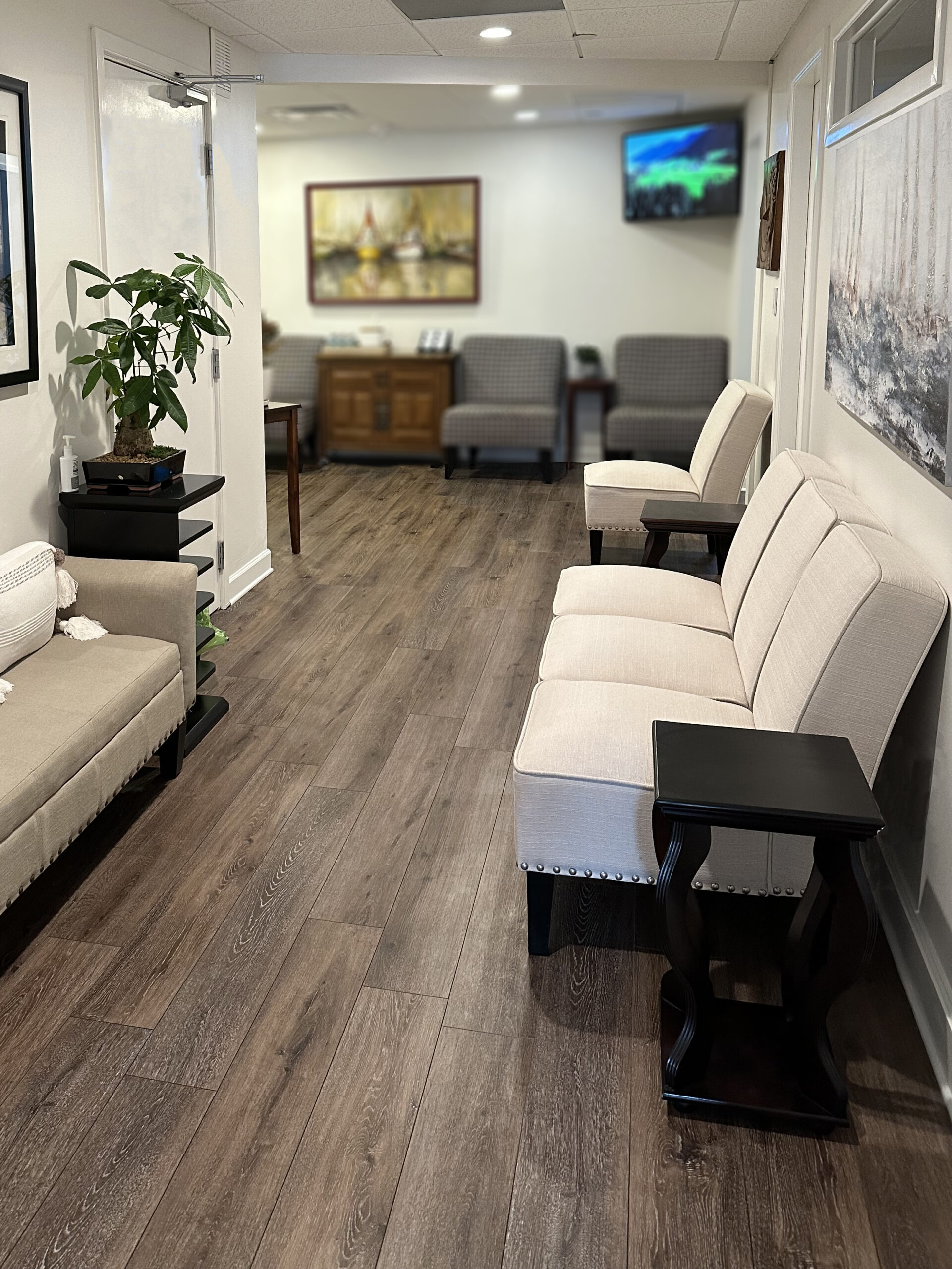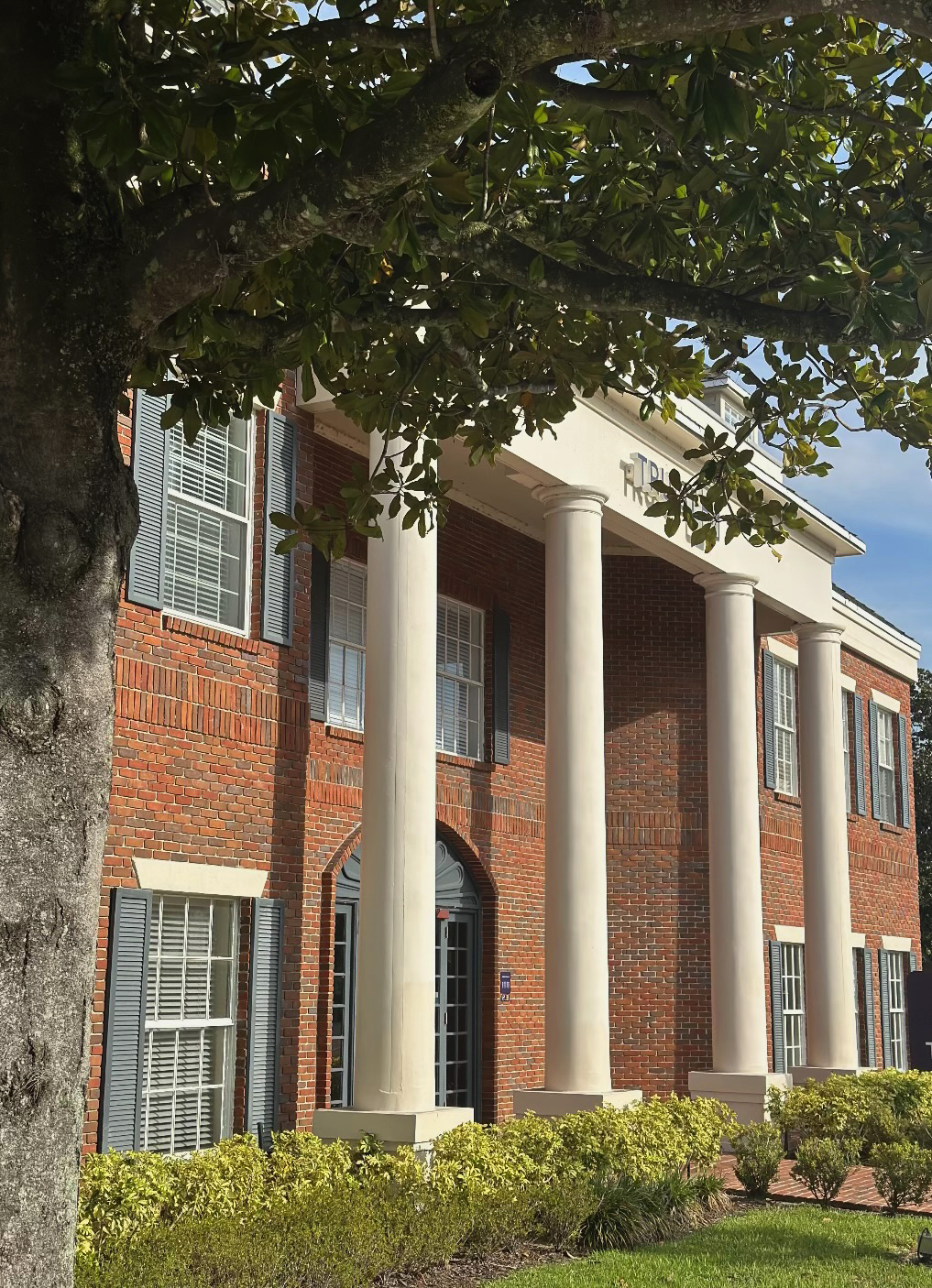Maximize Your Potential
Welcome To Neurogenesis Center Of Florida
What We Provide
Neurogenesis Center of Florida remains at the forefront of research based, non-pharmacological treatments, supporting a variety of mental health concerns as well as personal and professional growth and development.
Neurofeedback
- Noninvasive and non-pharmacological
- Computer-aided brain training technique.
- Adaptive and deliberate changes to the brain.
- Real-time video and auditory feedback learning.
- Effective for improvement to symptoms of ADHD, anxiety, depression, panic, ASD, and a wide variety of other issues.
Couples/Relationship Psychotherapy
- Rebuilding relationships and meaningful ways to reconnect.
- Developing and improving conflict resolution and communication skills.
Child and Adolescent Psychotherapy
- Identifying and modifying negative thought patterns and behaviors.
- Teaching practical coping strategies, communication skills, and promoting emotional well-being.
- Guidance and support for parents and families.
Biofeedback
- Technology-aided training technique.
- Intentional and directed changes to the Autonomic Nervous System.
- Training to assist in modifying physical symptoms of stress, pain, insomnia, anxiety, migraines, POTS.
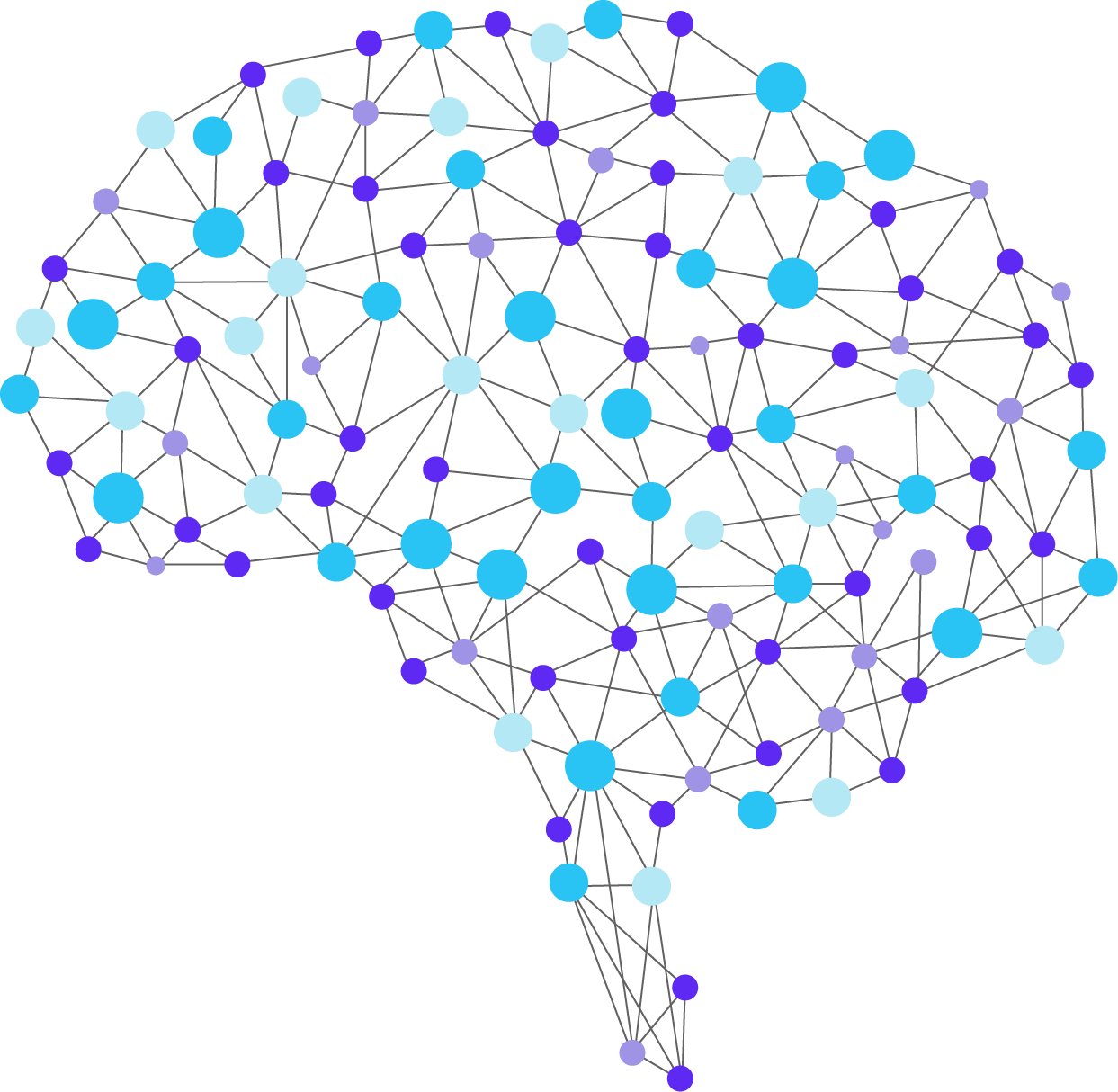
Equine Assisted Psychotherapy
- Utilization of horses’ natural instincts and behavior to guide therapeutic interventions and gain therapeutic insight.
- Experiential psychotherapy.
Individual Adult and Young Adult Psychotherapy
- Navigation through life’s transitions.
- Guidance, support, and relief from significant life stressors.
- Enhancement of interpersonal relationships.
- Reduction of maladaptive symptomology.
ADHD Evaluation
- Determination of accurate diagnosis.
- Documentation to assist with accommodations and supportive services.
- Presentation of feasible recommendations to improve daily functioning.
EMDR
- Reduction and alleviation of trauma and PTSD symptoms, depression, OCD, and anxiety.
- Bilateral stimulation to aid in cognitive reprocessing of traumatic memories and events.
- Efficiently reduces frequency and intensity of symptoms.
Our team

Amber Fasula,
PsyD, BCN
- Doctor of Psychology in Clinical Psychology (Psy.D.)
Adler University, Chicago, IL - Master of Arts in Counseling Psychology (M.A.)
Adler University, Chicago, IL - Master of Science in Social Science (M.A.)
Florida State University, Tallahassee, FL - Bachelor of Arts in English (B.A.)
Florida State University, Tallahassee, FL - Bachelor of Science in Criminology (B.S.)
Florida State University, Tallahassee, FL
- Licensed Clinical Psychologist in Illinois
- Licensed Clinical Psychologist in Florida
- Certified in Neurofeedback through the Biofeedback Certification International Alliance (BCIA)
- Certified in Hypnosis and Hypnotherapy from Adler University
- OK Corral Certification for Equine Assisted Psychotherapy (EAP)
- Level II Certification for Equine Assisted Psychotherapy for the Equine Assisted Growth and Learning Association (EAGALA)
- Physicians Society of Central Florida
- Neurogenesis, LLC
- Clinical Director/Founder
- International Society for Neurofeedback and Research (ISNR)
- Sergeant at Arms for Board of Directors
- Member at Large for Board of Directors
- Associate Editor of Neuroconnections Newsletter: A publication of ISNR
- Mental Health Resource Psychologist for the Dr. Phil Show
- Palos Behavioral Health Professionals, Palos Park, IL
- Director of Neuro/Biofeedback Services
- Individual, Group, and Family Therapy; Psychological Testing and Assessments; Quantitative EEG, Neurofeedback, Heart Rate Variability and Temperature Biofeedback
- Disruptive Behavioral Disorders Clinic, University of Illinois at Chicago
- Psychological Testing, Assessment, Feedback, and Coordination with children and adolescents suffering from a Disruptive Behavior (Attention Deficit Hyperactivity Disorder, Oppositional Defiant Disorder, Conduct Disorder), families, and educational institutions
- Reins of Change, Elgin, IL
- Equine Assisted Psychotherapy (EAP) with adolescent and adult women suffering from eating disorders, addictions, and dual diagnosis issues
- American Psychological Association (APA)
- Florida Psychological Association (FPA)
- International Society for Neurofeedback and Research (ISNR)
- Mosak, H.H., & Fasula, A. (2011). Transference in the light of Adlerian Psychology. Journal of Individual Psychology, 67, 343-348.
- Neuro Management Webinar, 2021
- Professional Perspective Series
- A live chat with Dr. Amber Fasula
- Click Here To Watch
- Neuro Therapeutics Webinar, 2019
- Versus for Professionals
- Expanding Your Business with Versus
- International Society of Neurofeedback and Research Annual Conference, Phoenix 2018
- Invited Panel: Practical Implementations of Neurofeedback in Practice
- Clinical panelists: Silvia Costales, MFT, BCN, Amber Fasula, Psy.D., BCN, Sebern Fisher, MA, LMH, BCN
- Host interviewer: Leslie Sherlin, Ph.D., CMPC, QEEGD, BCN, BCB
- International Society of Neurofeedback and Research Annual Conference, Phoenix 2018
Small Group Discussions Presentation- The Reality of Remote Training
- International Society of Neurofeedback and Research Annual Conference, Orlando 2016
- Small Group Discussions Presentation
- How to Get Involved – ISNR Committees and Member Groups
- International Society of Neurofeedback and Research Annual Conference, Denver 2015
- Small Group Discussions Presentation
- Integrating Neurofeedback Treatment into Psychotherapy in a Clinical Setting
- I RISE! A Virtual Conference for Survivors of Sexual Trauma, 2015
- International Virtual Conference Presentation
- Leading Edge of Healing through Neurofeedback
- International Society of Neurofeedback and Research Annual Conference, Dallas 2013
- Small Group Discussions Presentation
- Integrating Neurofeedback into a Psychological Practice
- Stroll Magazine, September 2017 to Present
- Our Heathrow Doctor Is In
- Over 60 published articles relating to psychology, psychological research, and mental health
- The Tiberius Show, February 2022
- Radio Broadcast and YouTube Channel
- Playground Magazine, October 2021
- Guest Contributor
- How to talk to your kids about scary things
- Orlando Magazine, May 2021
- Guest Contributor
- Your Wellness Guide: Digital Detoxing
- Orlando Magazine, September 2017
- Guest Contributor
- Digital Detox: Addicted to your phone? Here’s why you should take a step back from your screen

Arturo Cintron Torres, PsyD
- Doctor of Psychology in Clinical Psychology (Psy.D.)
Ponce Health Sciences University, Ponce, PR - Master of Psychology in Counseling Psychology (M.Psy.)
Universidad del Turabo, Gurabo, PR - Bachelor of Arts in Liberal Arts, concentration Psychology (B.A.)
Pontificial Catholic University of Puerto Rico, Ponce, PR
- Licensed Clinical Psychologist in Florida
- Licensed Psychologist in Puerto Rico
- University of Central Florida, Orlando, FL
- UCF students received initial assessments, individual counseling, couples therapy, group therapy and workshops. Sports Psychology interventions provided to UCF student athletes
- Private Practice, Ponce, PR
- Individual, couples and family therapy
- Behavioral Health Center, Ponce School of Medicine and Health Sciences, Ponce, P.R.
- Individual, couples and group psychotherapy
- Clinicia De Tratamiento Integral Asistido Con Medicamentos De Ponce, Ponce, PR
- Director and head of the interdisciplinary team
- National University College, Ponce, PR
- Individual, couples and family therapy
- American Psychological Association (APA)
- University of Central Florida – Educational Seminar for Psychology Doctoral Interns – 2020
- Understanding Severe Psychopathologies
- University of Central Florida – Educational Seminar for Psychology Doctoral Interns – 2020
- Working with Hispanic and Latin Clients
- University of Central Florida – SDES Institute Conference 2019 – Presentation for Employees of the Department of Student and Development and Enrollment Services (SDES)
- A Concert for your Soul
- University of Central Florida – Continuing Education Workshop for Mental Health Professionals 2018
- The Practice of REBT
- University of Central Florida – Educational Seminar for Psychology Doctoral Interns – 2018
- Sports Psychology – Working with Student/Athletes

Laurie Kemper,
PsyD
- Doctor of Psychology in Clinical Psychology (Psy.D.)
Florida Institute of Technology, Melbourne, FL - Master of Science in Clinical Psychology (M.Psy.)
University of Central Florida, Orlando, FL - Bachelor of Arts in Psychology (B.A.)
University of Central Florida, Orlando, FL
- Licensed Clinical Psychologist in Florida
- American Diabetes Association Mental Health Provider
- QPR Certified Gate Keeper Instructor – Suicide Prevention Trainer
- University of Central Florida, Orlando, FL
- Initial assessments, individual counseling, relationship counseling, group therapy, and workshops
- Florida Hospital of Psychiatry, Orlando, FL
- Out patient psychiatric facility conducting initial assessments and individual therapy
- University of Florida Counseling and Testing Center, Gainesville, FL
- Initial assessments, individual counseling, relationship counseling, group therapy,
- American Psychological Association (APA)
- FCRT: Florida Crisis Response Team
- University of Central Florida – Educational Seminar for Psychology Doctoral Interns – 2023
- Professionalism and Communication
- University of Central Florida – UCF Faculty, Students, Staff- 2018-Present
- QPR – Suicide Prevention
- University of Central Florida – UCF Women 2023 –
- Self Compassion
- University of Central Florida – UCF VP and Faculty 2022
- Trends in Mental Health and Trauma Post COVID
- University of Central Florida – Educational Seminar for Psychology Doctoral Interns – 2022
- Application of Ethics and Legal Standards
- University of Central Florida – UCF Faculty, Students, Staff- 2020
- Type 1 Diabetes, Depression, and Anxiety
- University of Central Florida – Educational Seminar for Psychology Doctoral Interns – 2020
- EPP Licensure and Beyond

Caitlin S. Lowry,
PhD, LMFT
- Doctor of Philosophy in Couple and Family Therapy (Ph.D.)
- Nova Southeastern University Fort Lauderdale, FL
- Master of Science in Couple and Family Therapy (M.S.)
- Nova Southeastern University Fort Lauderdale, FL
- Bachelor of Science in Screenwriting & Film Studies (B.S.)
- The New School University New York, NY
- Licensed Marriage and Family Therapist in Florida
- Licensed Marriage and Family Therapist in Illinois
- OK Corral Certification for Equine Assisted Psychotherapy (EAP) and Equine Assisted
Learning (EAL) - Context Consultants & Valdosta State University Certification in Introductory, Intermediate, & Advanced Training in Hypnosis and Hypnotherapy
- Neurogenesis Center of Florida, Maitland, FL
- Individual, Couple, Family, and Group Equine-Assisted Psychotherapy (EAP),
- Attuned Minds Therapy, Lake Mary, FL
- Individual, Couple, and Family Therapy, Hypnotherapy
- St. Charles Counseling, St. Charles, IL
- Individual, Couple, and Family Therapy
- Nova Southeastern University, Fort Lauderdale, FL
- Doctoral Teaching Assistant in Couple and Family Therapy
- Stable Place in Couple and Family Therapy, Nova Southeastern University, Fort Lauderdale, FL
- Graduate Assistant to Dr. Shelly Green
- Nova Southeastern University, Fort Lauderdale, FL
- Supervisor Assistant in Couple and Family Therapy
- Stable Place, Davie, FL
- Individual, Couple, Family, and Group Equine-Assisted Family Therapy (EAFT)
- PROMISE Program/Systemic Change in Schools, Fort Lauderdale, FL
- Individual and Group Therapy
- Individual, Couple, and Family Therapy
- Brief Therapy Institute, Fort Lauderdale, FL
- American Association of Family Therapy (AAMFT) Clinical Fellow
- American Society of Clinical Hypnosis (ASCP)
- Lowry, C., Green, S., Flemons, D. (February, 2021). Equine-Assisted Relational Family
Therapy. Presentation delivered at the Florida Mental Health Counselors Association Virtual
Summit.

Daniel Tellez,
LMHC
- Master of Science in Psychology (M.S.)Florida International University
- Bachelor of Arts in Psychology (B.A.)Florida International University
- Licensed Mental Health Counselor in Florida
- Summer Treatment Program at FIU, Youth Counselor, Miami, FL
- Group behavioral interventions provided to Miami-Dade County children aged 5 to 6 who presented with attention-deficit/
hyperactivity, conduct disorder, and oppositional defiant disorder.
- Group behavioral interventions provided to Miami-Dade County children aged 5 to 6 who presented with attention-deficit/
- Child Anxiety and Phobia Program at FIU, Intern, Miami, FL
- Children aged 5 to 12 received initial evaluations and individual therapy. CBT-Exposure therapeutic services provided to Miami-Dade County children with anxiety-related disorders, including separation anxiety, social phobia, specific phobia, and generalized anxiety.
- Community Mental Health Center, ABC’s for Success, Assessor & Mental Health Therapist, Miami, FL
- Intake assessments and individual therapeutic services provided to children, adolescents, and adults with challenges and difficulties related to anxiety, depression, anger, and ADHD.
- Private Practice, My Oviedo Counselor, Assessor & Mental Health Therapist, Orlando, FL
- Initial evaluations, individual therapy, and parent training provided to youths and their families with presenting problems of anxiety, anger, and ADHD.

Stacey Herdegen,
MA
- Master of Arts in Marriage, Couples, & Family Therapy (M.A.)
University of Central Florida, Orlando, FL - Bachelor of Arts in Psychology (B.A.)
University of South Florida, Tampa, FL
National Certified Counselor (NCC) through the National Board for Certified Counselors (NBCC)
EMDR trained through EMDR International Association (EMDRIA)
Certified as a First Responder Associate (CFRA) through First Responder Counseling by Lighthouse Academy Hour
- Center for Discovery, Maitland, FL
- Program Director
- Individual, Group, and Family Therapy in the treatment of eating disorders and co-occurring mental health disorders in a PHP/IOP Program, including CBT, DBT, ERP, ACT, and Biofeedback.
- Discovery Mood and Anxiety Program, Maitland, FL
- Assistant Program Director
- Individual, Group, and Family Therapy in the treatment of mental health in a PHP/IOP program, including CBT, DBT, ERP, ACT, and Biofeedback.
- Moffitt Cancer Center, Tampa, FL
- Research Assistant
- Cognitive, behavioral, and psycho-physiological testing and development of cessation protocols and relapse-prevention
interventions.
- American Psychological Association (APA)
- American Counseling Association (ACA)

Matthew Sharkey,
PhD
- Doctor of Philosophy in Counseling Psychology (Ph.D.), Texas Tech University, TX
- Master of Arts (M.A.) in Psychology, Texas Tech University, TX.
- Bachelor of Science (B.S.) in Psychology, University of Florida, FL.
- University of Central Florida Counseling and Psychological Services (Doctoral Internship), Orlando, FL
- Lubbock County Detention Center, Lubbock, TX
- Covenant Health Medical Center, Neurology Clinic, Lubbock, TX
- Texas Tech University Health Science Center, Internal Medicine Clinic and HIV Clinic, Lubbock, TX
- Texas Tech University Student Counseling Center, Lubbock, TX
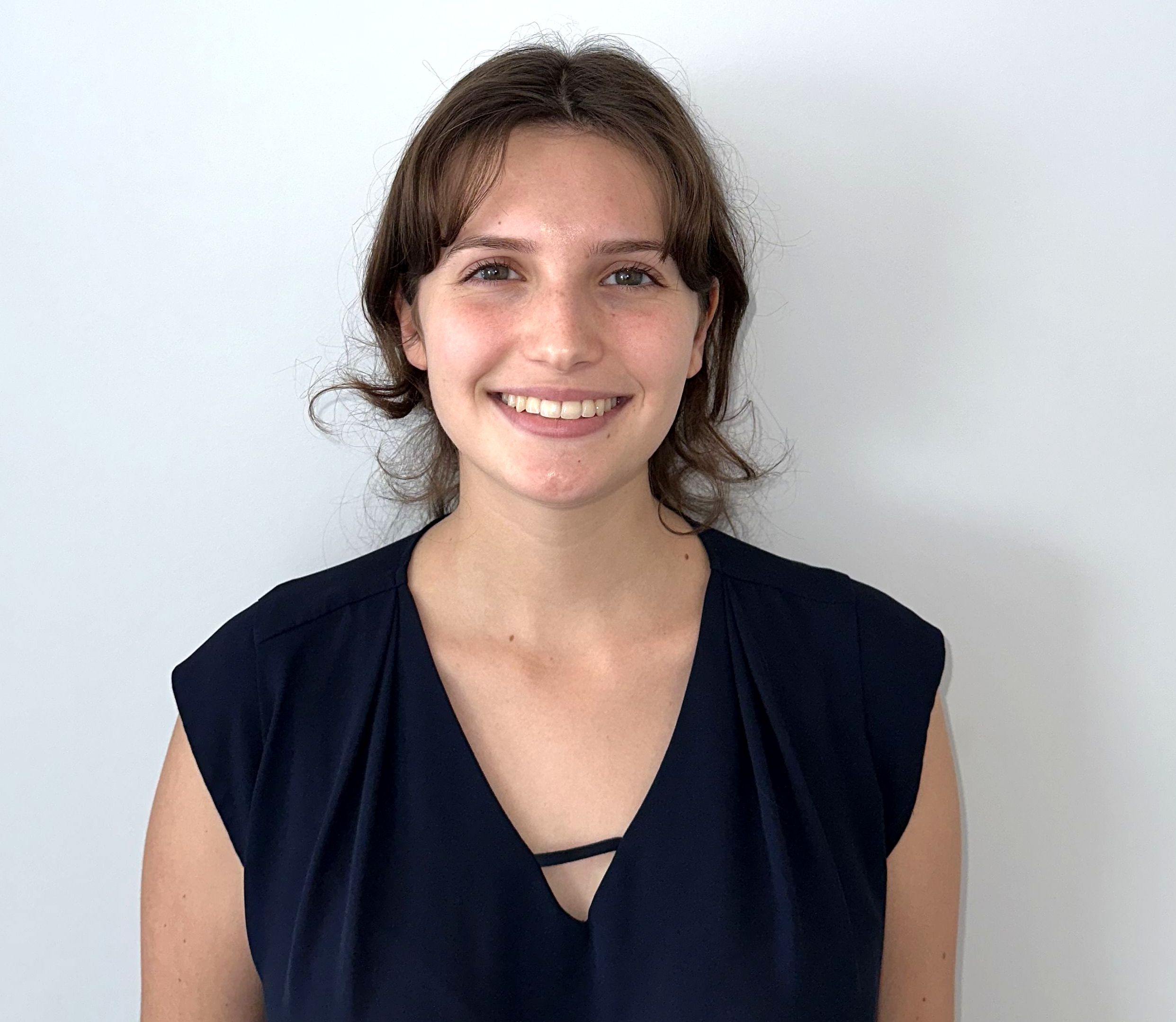
Valentina Ezcurra
- Bachelor of Science in General Psychology (B.S.) (Expected May 2025)
University of Central Florida, Orlando, FL
- Manager, The Wanderers Club, Wellington, FL
- Provided nurturing and attentive childcare for children. Facilitated creative arts, crafts, stimulating activities, and memorable events for children.
- Vinceremos Therapeutic Riding Center, Loxahatchee Groves, FL
- Empowering children with disabilities through equine connections. Building lifelong bonds: Teaching children to ride and connect with horses.
- Dr. Brain Fisak’s Post-Event Processing and Anxiety Lab, University of Central Florida
- Research Assistant

Maria Belen Bengolea, BS
- Bachelor of Science in Psychology (B.S.) University of Central Florida, Orlando, FL
- Master of Arts in Counseling (M.A.) (Expected May 2025) Palo Alto University, Palo Alto,
CA
- Certificate in Behavioral Forensics University of Central Florida, Orlando, FL
- Florida Autism Center- Blue Sprig
- Registered Behavior Technician
- Reflections Creative Therapies
- Counseling Intern
- Lake Mary Montessori Academy
- School Psychology Intern
- Homeschool Teacher

Melody McKay
- Melody has significant administrative and customer service experience in the behavioral health field from working at the University of Central Florida’s Counseling and Psychological Services office.

Kristen Hebert
- Kristen’s company, ClearPsych, Inc is a privately owned mental health billing service. Backed by over 15 years of experience, she specializes in the billing of mental health services. Kristen has managed billing services for Neurogenesis Center of Florida for over eight years.
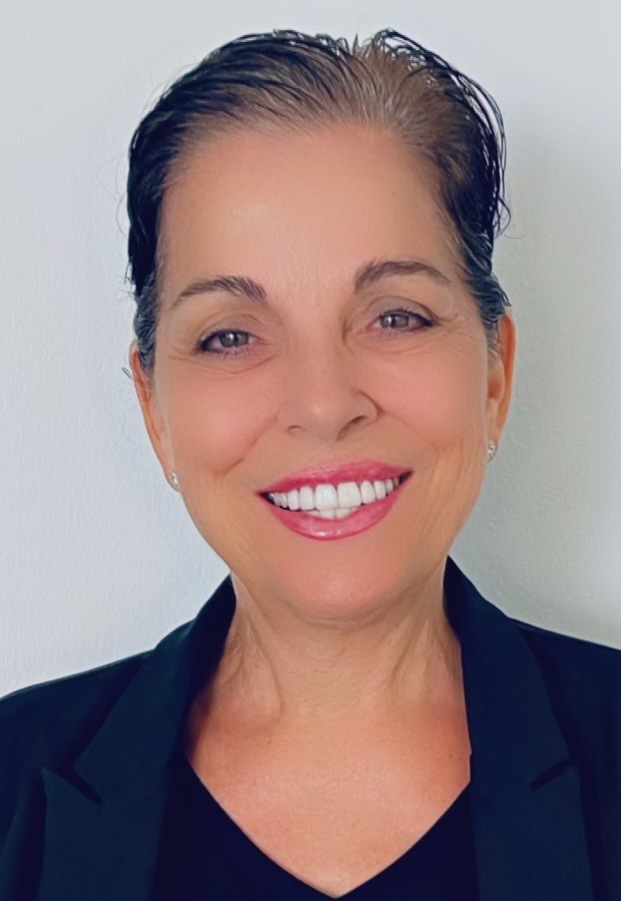
Felicia Donatelli
- Felicia has over 40 years’ experience in the development and growth of new organizations, site management, administrative and procedural processes.
- Certified Transcranial Magnetic Stimulation Technician
- Certified Life Coach
- Certified Personal Trainer
- Certified Yoga Instructor
Our Services
Individual Adult and Young Adult Psychotherapy
Many adults and young adults suffer from a variety of issues stemming from the continuous changes in family structure, cultural demands, work dynamics, and the increasing stressors of a rapidly changing and unpredictable world. These issues contribute to an array of problems associated with anxiety, depression, mood disorders, trauma, interpersonal and business relationships, executive functioning, and body image, as well as family and social difficulties. The psychologists and mental health professionals at Neurogenesis Center of Florida, representing over 60 years of collective experience, utilize an array of theoretical orientations to treat and support a wide breadth of clinical concerns.
Children and Adolescent Psychotherapy
Children and adolescents often face a multitude of challenges and transitions that can significantly impact their emotional well-being and development. From academic pressures and social dynamics to family conflicts and internal struggles, young individuals may find it difficult to navigate these complexities on their own. With a focus on creating a safe and nurturing environment, the team of professionals at Neurogenesis Center of Florida empower young individuals to explore their thoughts and emotions, develop essential coping skills, and build resilience. Our goal is to support children and adolescents on their unique journeys towards healing, growth, and ascending to a brighter future. Specialized services include:
- Focusing on identifying and modifying negative thought patterns and behaviors and teaching practical coping strategies, which promote emotional well-being.
- Providing guidance and support for families to navigate parenting challenges, develop effective communication skills, and create a nurturing and supportive environment for their child or adolescent.
- Incorporating mindfulness practices to help children and adolescents develop self-awareness, manage stress, regulate emotions, and improve overall mental well-being.
Enhancing social skills, including communication, problem-solving, empathy, and building healthy relationships. - Exploring and amplifying existing strengths and resources, helping children and adolescents identify solutions and work towards positive change.
Couples and Relationship Psychotherapy
Relationships with spouses, partners, and significant others are often times the most important and meaningful relationships throughout our lifespan. At times, these relationships feel strained or unhealthy, causing pain and concern. The psychologists and mental health professionals at Neurogenesis Center of Florida work with couples to rebuild their relationships, find meaningful ways to reconnect, and feel happiness and success within a relational dynamic. Couples can learn effective communication skills and issue resolution techniques as well as utilize a safe and comforting environment to address pain within their relationship. The goal is to strengthen the relationship and maintain skills that promote growth in a partnership.
Grief Counseling
Loss can have a profound impact on individuals of any age. At times, grief can be so overwhelming that it becomes difficult to continue our daily lives and challenging to establish a “new normal.” Untreated pain due to grief/loss can contribute to symptoms of depression and anxiety. The psychologists and mental health professionals at Neurogenesis Center of Florida provide a safe environment to address the complexities of this challenge that are unique to each individual in both severity and longevity. Providers are available to work with individuals that need support and psychoeducation to accept, adjust, and rebuild a healthy life for themselves.
Equine Assisted Psychotherapy (EAP)
EAP is a technique that utilizes horses as an important tool in the therapeutic processes. Unlike traditional talk therapy, EAP allows clients to bond with horses while engaging in self-discovery and behavioral modification as they complete therapeutic activities. Riding and horsemanship are not part of the therapeutic experience. Instead, various interactions and activities are accomplished in conjunction with the horses. During a typical session, a mental health professional works alongside an equine specialist, which allows the mental health professionals to focus on the client’s learning and interaction while the equine professional provides safety in addition to understanding the horse’s body language and providing insight based on those observations.
Since EAP is a powerful, experiential, and hands-on treatment, clients can expect a total of between six and ten sessions. EAP is used to help treat individuals, groups, and families struggling with a variety of issues such as anxiety, depression, ADHD, divorce, trauma, and addiction. Additionally, EAP has more recently been shown to be a powerful technique in assisting veterans suffering from PTSD. Businesses, organizations, and clubs also utilize EAP for team building exercises, developing trust, and enhancing communication skills.
Neurofeedback
Neurofeedback services are provided under International Board Certification through the Biofeedback Certification International Alliance (“BCIA”). Neurofeedback is an option for children, adolescents, adults, and the aging community who are looking for a supplemental and/or an alternative treatment option to medication for the treatment of anxiety, depression, attention, mood disorders, insomnia, chronic pain, and problems with alertness. Neurofeedback has been demonstrated to be useful in treating symptoms of ADHD, anxiety, Autism Spectrum Disorders, mood disorders, insomnia, certain developmental disorders, PTSD, chronic pain, and addictions, in addition to assisting with peak performance. For new clients, Neurogenesis conducts an initial EEG assessment consisting of an analysis of 19 areas of the brain. This assessment, called a Quantitative EEG or brain map, takes approximately 90 minutes to complete and uses normative data to compare results. Clients then receive a tailored / individualized protocol that engages and teaches their brains to respond in new and optimal ways. Neurofeedback training accelerates and simplifies the establishment of transformative and constructive behaviors compared to therapy and medication alone. For optimal results, these sessions typically occur two or three times a week and most clients demonstrate significant improvements in symptoms and behavior within 20 to 30 sessions.
Find out more about neurofeedback
Biofeedback
Two forms of biofeedback treatment conducted at Neurogenesis Center of Florida include Heart Rate Variability (“HRV”) Biofeedback Training and Temperature Biofeedback Training. HRV can be a powerful indicator of the health of the autonomic nervous system, positive and negative emotional states, and self-regulatory control. Both HRV and Temperature Biofeedback Training techniques can be used to treat various forms of anxiety, panic attacks, headaches, chronic pain, irritable bowel syndrome, and symptoms of Postural Orthostatic Tachycardia Syndrome (POTS). Precise instruments measure physiological activity such as heart function, breathing rates, muscle activity, and skin temperature. These instruments rapidly and accurately “feed back” information to the user and the presentation of this information, often in conjunction with changes in thinking, emotions, and behavior, supports desired physiological changes. Over time, these changes can endure without continued use of an instrument (bcia.org). Heart Rate Variability Training can also be used for athletes interested in improving peak performance through the augmentation of the respiratory sinus arrhythmia (RSA), a noninvasive measure of cardiac vagal tone.
ADHD Evaluation
The most important reason to obtain a psychological evaluation is to establish an accurate diagnosis. An accurate diagnosis is the first step towards receiving tailored and specific treatment and the beginning of living a productive and successful life. Unfortunately, an accurate diagnosis can be difficult without a thorough evaluation. Our ADHD evaluation includes a comprehensive clinical interview, attention and inhibition assessments, along with assessments of executive and emotional functioning. Accurate measurements for each of these areas are important to help create the most detailed picture of specific struggles with inattention, impulsivity, and/or hyperactivity. The evaluation can also assist in pinpointing whether the specified issues are caused by an attention deficit disorder or if alternative or underlying conditions are the source of the symptoms. Many other conditions, including anxiety and mood disorders, can produce symptoms that mirror those found in ADHD.
The goal of our ADHD evaluation is not only to provide an accurate diagnosis, but to provide appropriate and feasible recommendations to improve the individual’s day-to-day functioning.
emdr
Eye Movement Desensitization and Reprocessing (EMDR) is a structured therapy that encourages the client to focus briefly on the trauma memory while simultaneously experiencing bilateral stimulation (typically eye movements), which is associated with a reduction in the vividness and emotion associated with the trauma memories. EMDR therapy is an extensively researched, effective psychotherapy method proven to help people recover from trauma and PTSD symptoms. Ongoing research supports positive clinical outcomes showing EMDR therapy as a helpful treatment for disorders such as anxiety, depression, OCD, chronic pain, addictions, and other distressing life experiences (Maxfield, 2019). EMDR therapy does not require talking in detail about the distressing issue or completing homework between sessions. EMDR therapy, rather than focusing on changing the emotions, thoughts, or behaviors resulting from the distressing issue, allows the brain to resume its natural healing process. EMDR therapy is designed to resolve unprocessed traumatic memories in the brain. For many clients, EMDR therapy can be completed in fewer sessions than other psychotherapies (emdria.org).
Our Office
Frequently Asked Questions
Neurofeedback training is brainwave biofeedback. During a typical training, a few electrodes are placed on the scalp and the earlobes. Then, high-tech electronic equipment provides real-time, instantaneous audio and visual feedback about brainwave activity. There is no electrical current that is put into the brain; instead, the brain’s electrical activity is relayed to the computer and recorded (Hammond, 2006).
On average, it takes approximately 30 sessions to make significant improvements in attention, behavior, anxiety, mood, alertness, etc.
The goal of the treatment is to teach children, adolescents, and adults to change the way their brain works, so that they can better manage and minimize the aforementioned issues. Neurofeedback is used to train individuals to change their brain wave patterns. Using an electroencephalograph (EEG) to monitor the brain waves and a system of positive reinforcement, the individuals learn how to make their brains become more functional and constructive. The result is that there is a significant reduction in various symptoms and improvements in behavior and emotion, relative to how well individuals learn to control their own brain function.
The initial assessment, called a Quantitative EEG, is a scientifically established method for evaluating brain function based on brain electrical activity mapping. In this form of functional brain imaging, the brain’s electrical activity, as measured in 19 areas on the head, is analyzed using complex mathematical and statistical tools in comparison to norms or averages. These norms are based on the electrical activity of thousands of individuals with no known neurological, developmental, or psychiatric disorders. This method of assessing brain function provides information about patterns of brain activation and communication that can then be related to difficulties in daily life functioning such as problems with attention, anxiety, mood, learning, or behavior.
Once the Quantitative EEG report is complete and reviewed in a feedback session, the clinician designs a specific protocol to “teach” the brain that enables the subject to change previously established patterns. For optimal results, the individual comes for neurofeedback sessions twice a week.
EEG is a measure of electrical changes in our brain that present as spikes, transients, or seemingly random events and rhythms. During a neurofeedback session, the clinician uses knowledge of brain anatomy, psychological testing, behavioral measurement, and QEEG to apply the principles of learning. As a result, specific brain activity patterns can be taught, established, or extinguished (i.e. learned or unlearned) (Kaiser, 2001).
Biofeedback is a non-invasive form of treatment. The clinician attaches sensors or electrodes to the body and these sensors provide a variety of readings or feedback which is displayed on the equipment for the individual to see. The signals typically measure skin temperature, muscle tension and/or brainwave function. Therapeutic support, in combination with this information, help individuals make significant changes in their feeling and performance in particular situations. At first the changes are so subtle they cannot be consciously perceived; however, over time the results of these changes become obvious. With practice, the new responses and behaviors can help to bring significant relief and improvement to a variety of limiting behaviors.
The key to Biofeedback training is that it teaches individuals self-regulation. That means that individuals are in control of their feelings, rather than being driven by them. It also means that over time, individuals become able to manage their own situation without dependency on professionals or the biofeedback sessions. Dr. Fasula uses Heart Rate Variability Biofeedback Training and Temperature Biofeedback Training to help individuals address and manage a number of conditions. Once the techniques are learned, individuals may never again require biofeedback therapy or only a “refresher” session now and then.
Typically, biofeedback treatment involves a regular series of sessions over a period of several weeks. On average, the course of treatment ranges between six and 12 sessions.
Contact Us
Neurogenesis
Center of Florida
-
253 North Orlando Ave, Suite 202
Maitland, FL 32751 - Office: (407) 790-4101
- Fax: (407) 277-4400


